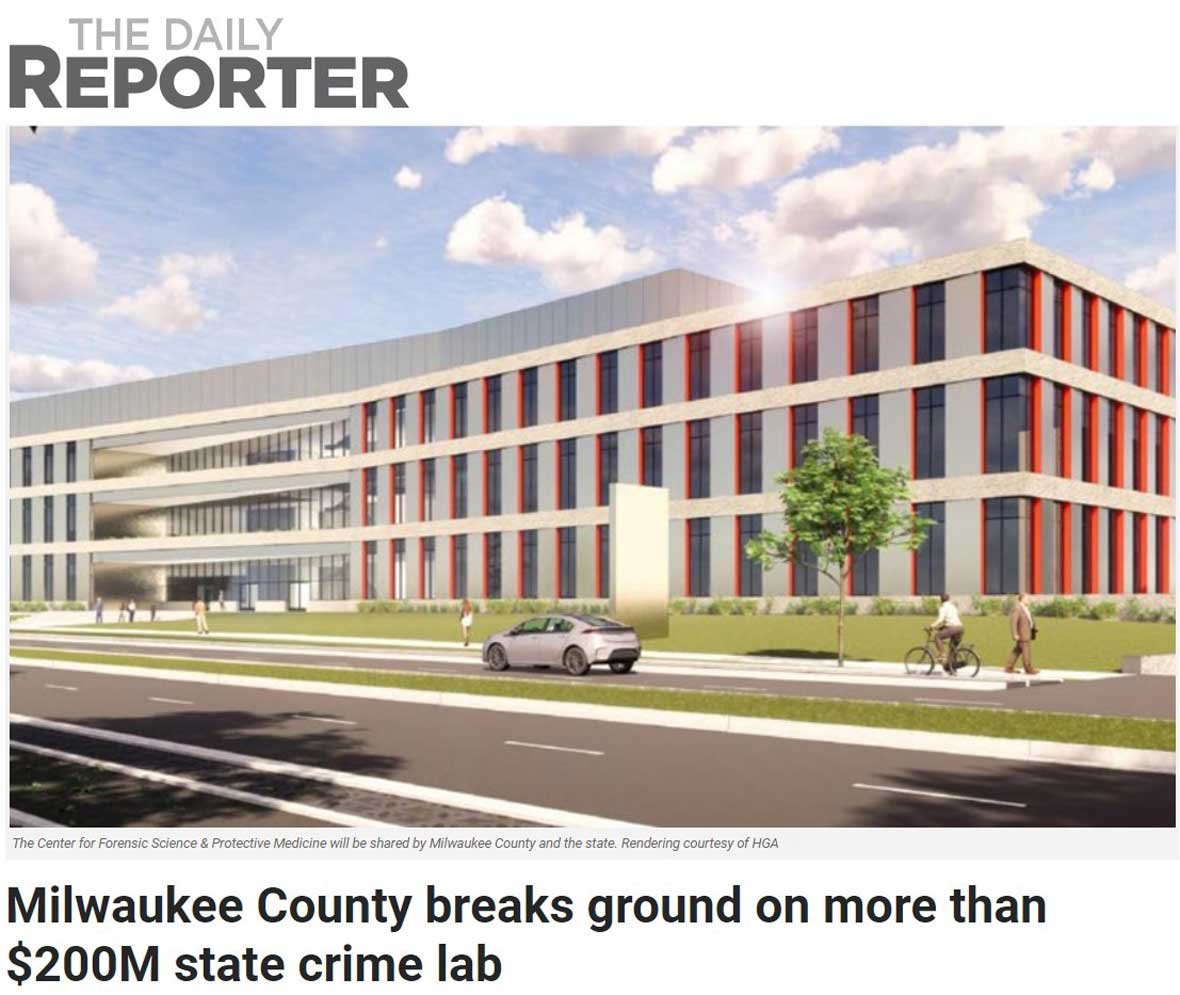Forensic Science and Protective Medicine Facility Breaks Ground
MILWAUKEE, Wis. – (Nov. 10, 2023) – Today, a groundbreaking was held for the Forensic Science and Protective Medicine Facility that will serve as a new state-of-the-art home for the state of Wisconsin’s Milwaukee Crime Lab, the Milwaukee County Medical Examiner’s Office and the Milwaukee County Office of Emergency Management. In addition, the four-story facility will include the relocated Organ Procurement Organization and Tissue Bank of Versiti Wisconsin (a current Milwaukee Regional Medical Center (MRMC) campus partner).
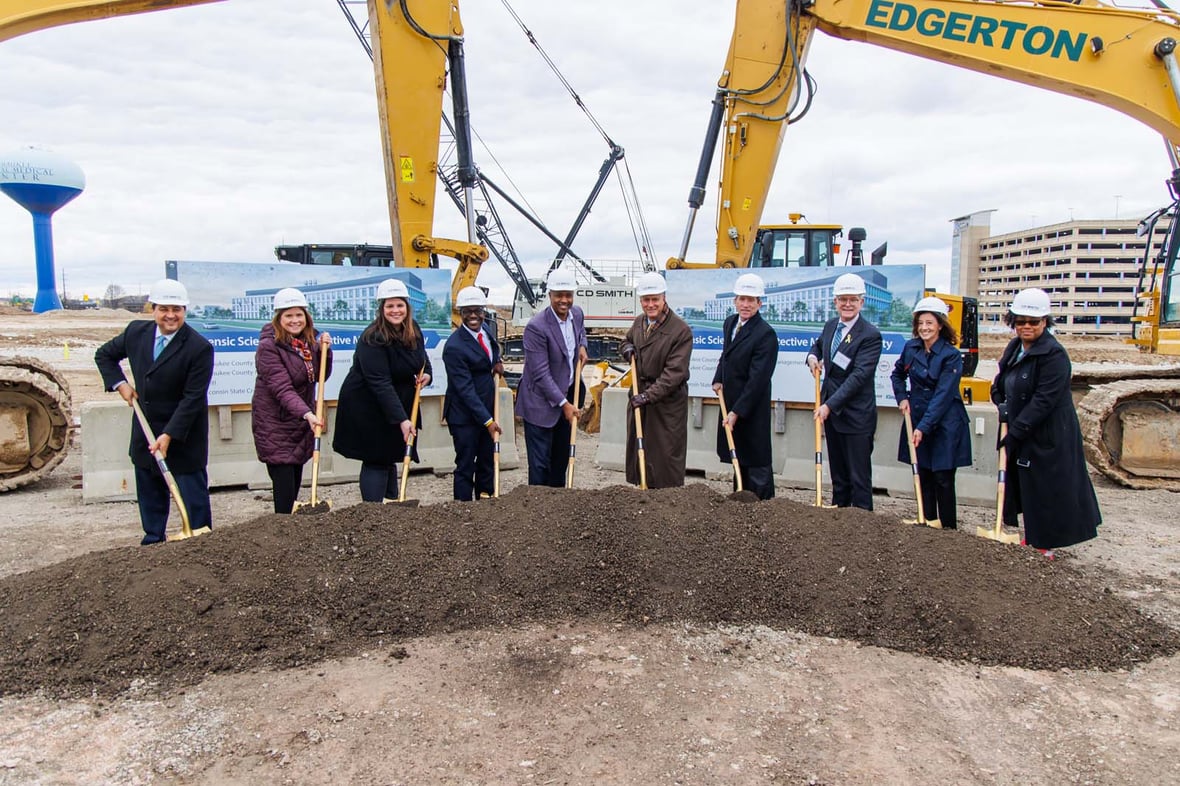
Bringing these entities together under one roof is expected to provide synergies and efficiencies, not only during the design and construction phases but also through the ongoing operations after occupancy. Co-location of these organizations will:
- Increase efficiencies and effectiveness in addressing the ongoing and accelerating opioid and violence epidemics.
- Aid coordination and collaboration during mass fatality and catastrophic scenarios.
- Optimize partnerships among laboratories with the potential for resource-sharing and backup.
- Provide one location to best investigate combined/preserved evidence.
- Create one of the most attractive forensic science sites in the country to attract, train and retain the best forensic candidates.
- Capitalize on synergies, research and training with partners on the MRMC campus.
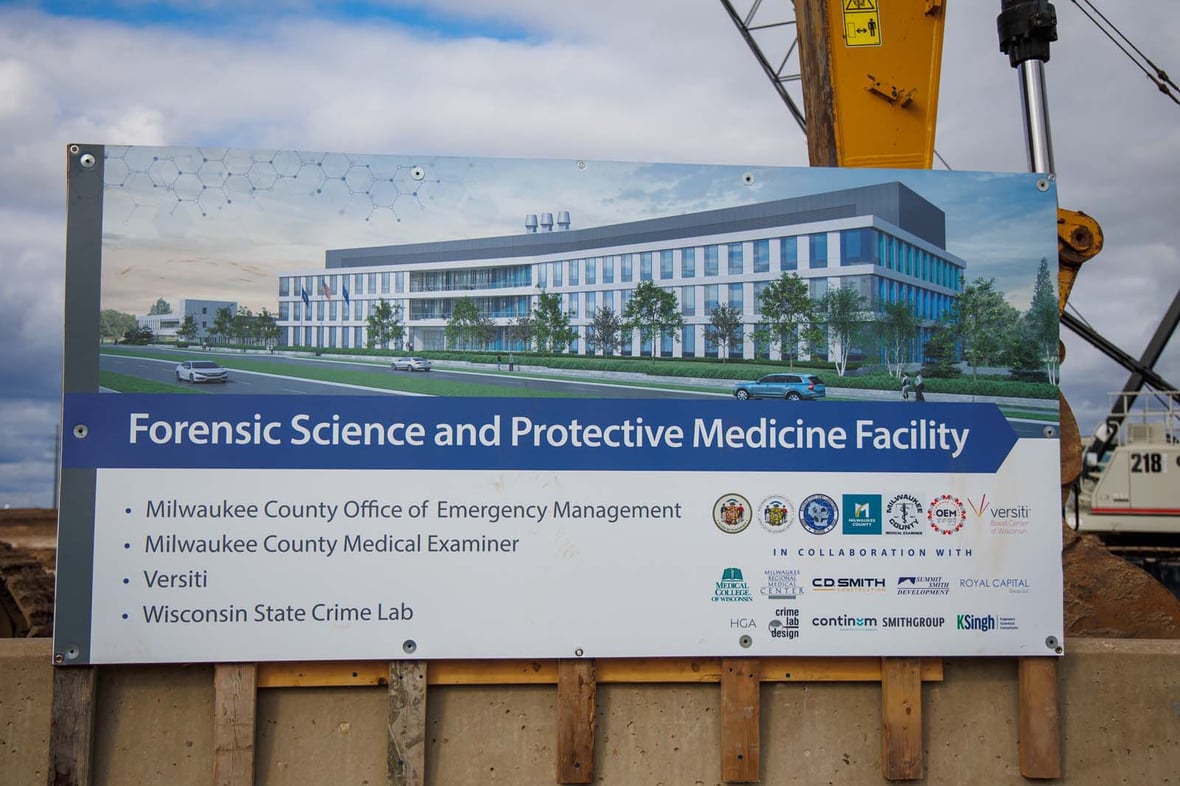
The Forensic Science and Protective Medicine Facility is being funded with $99.5 million in state funds that were approved in August 2022 by the State Building Commission, which is chaired by the governor. After multiple previous attempts to move this project forward failed, in September 2022, Gov. Evers announced an additional $20 million grant for Milwaukee County to assist in the construction of the facility. This additional investment directed by Gov. Evers ensured the project could meet the threshold needed to begin construction and prevented the project from once again being stalled.
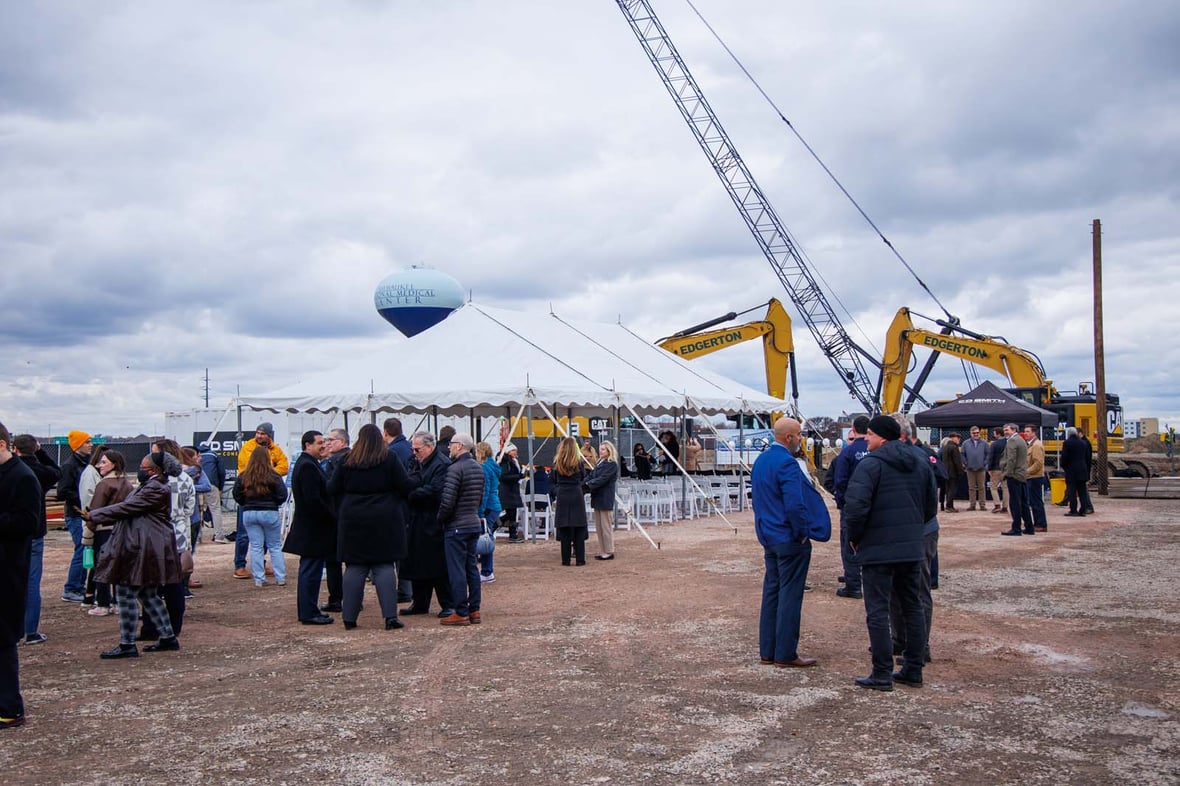
“Investing in keeping our schools, our streets, and our communities safe has been a top priority for us, from directing more than $100 million to support crime and violence prevention statewide to providing generational increases in shared revenue to help ensure local law enforcement and first responders have the support and resources they need to do their jobs every day,” said Gov. Evers. “Our work to advance this project has been a critical part of our efforts to improve community safety statewide, and I was glad to direct an additional $20 million to get this project across the finish line. I am also incredibly grateful for the partnership of Milwaukee County Executive David Crowley, whose advocacy and leadership made this effort possible. This new facility will help significantly bolster the collective impact of the many partners involved in this project, which will help strengthen our efforts to keep Wisconsin communities and families healthy and safe.”
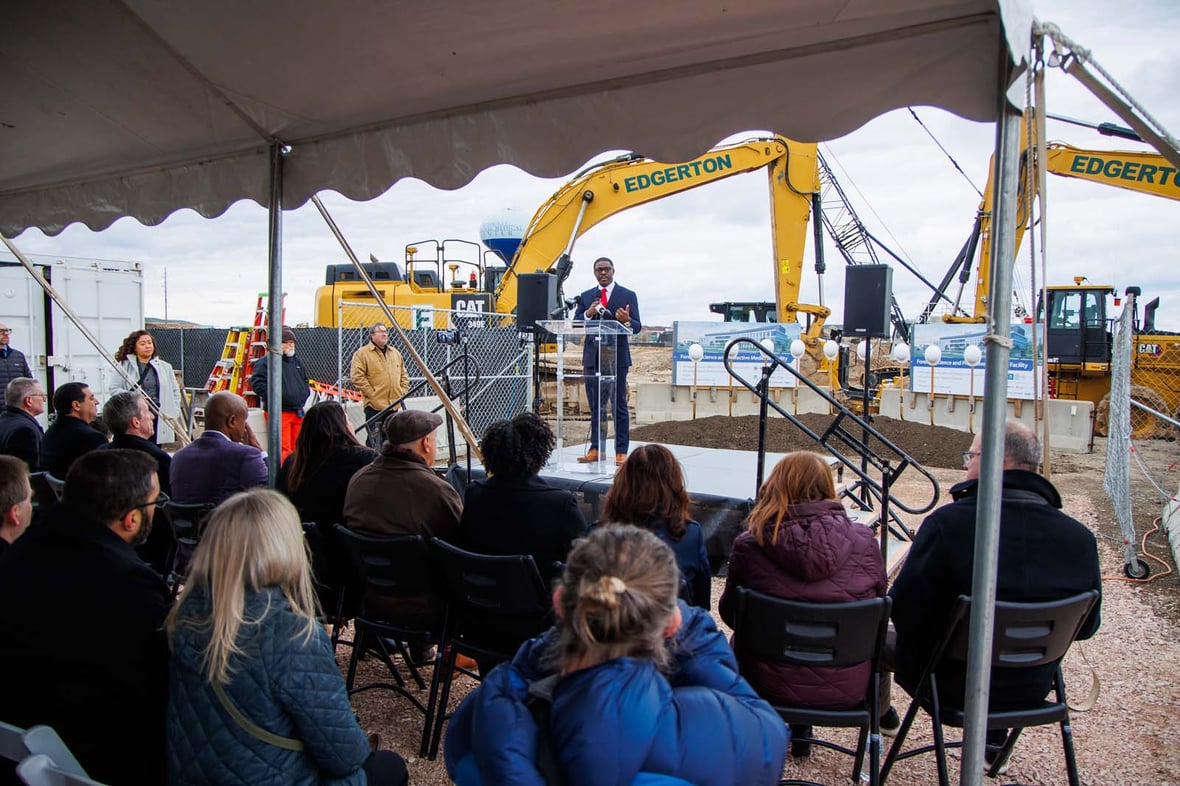
“Efforts to build a new crime lab in the Milwaukee area began well before I was first sworn in as Attorney General, and I’m thrilled that we’re now able to put shovels in the ground to get this done,” said Attorney General Josh Kaul. “My top priority is public safety, and ensuring the state crime labs have the facilities they need to keep up with scientific and technological advancements will help with the crucial work of keeping our communities safe.”
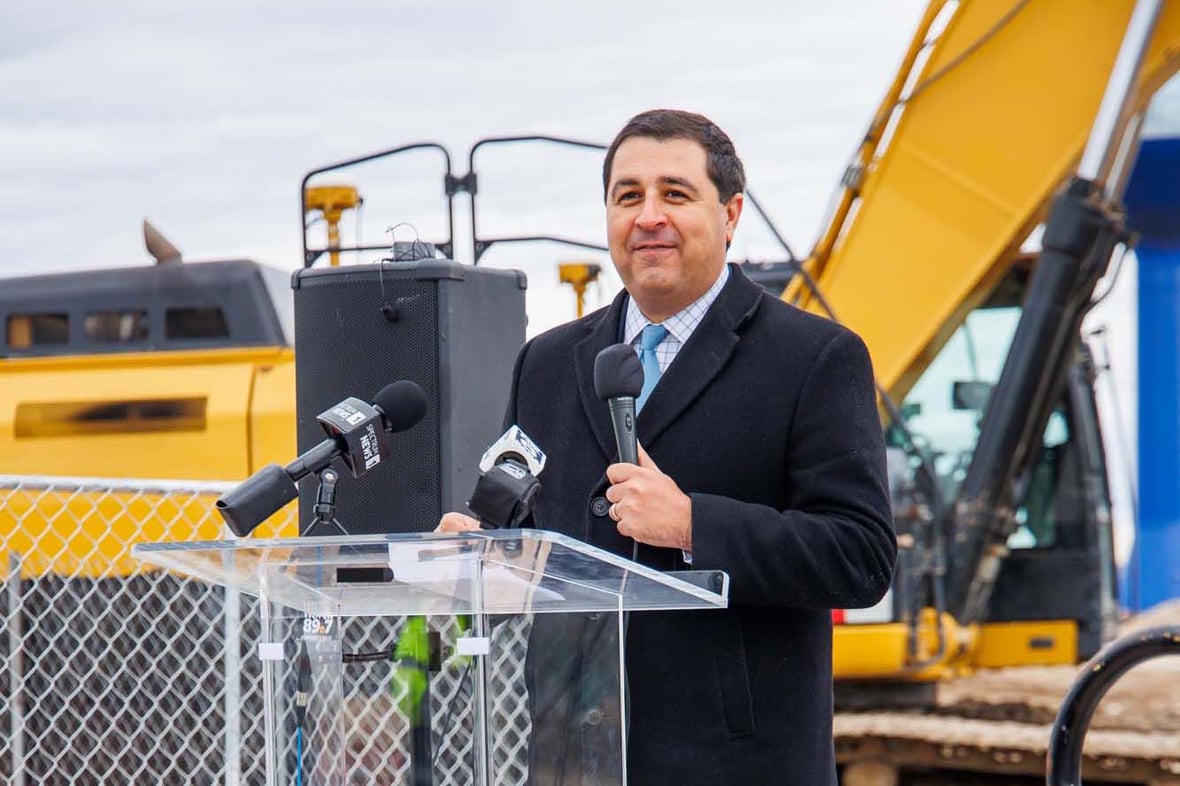
Centrally located on the MRMC campus in Milwaukee, the Forensic Science and Protective Medicine Facility provides easy access to all major highways, as well as to the Milwaukee County Transit System. The facility, co-owned by the state and county, will benefit from more than $1 billion in recent investments from interchange construction to the MRMC’s thermal plant utilities offering reliability and reduced rates. The facility’s proximity to restaurants, hotels and meeting spaces also makes it a prime location for staff and visitors.
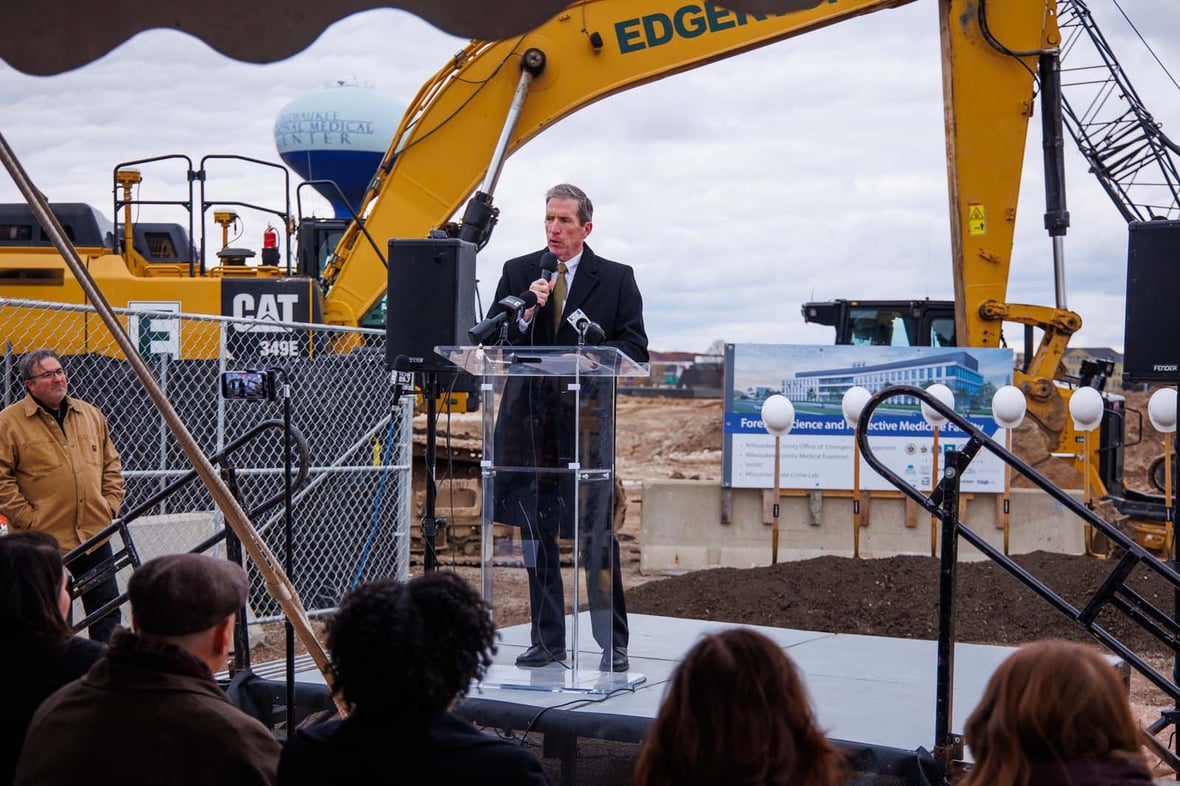
“The new Forensic Science and Protective Medicine Facility is the result of significant multi-jurisdictional collaboration to create a desperately needed space for the Milwaukee County Medical Examiner and to enhance the operations of the Milwaukee County Office of Emergency Management,” said Milwaukee County Executive David Crowley. “This future facility will help advance our vision of Milwaukee County becoming the healthiest county in the State of Wisconsin, and I’m grateful for the public-private partnership to generate a positive statewide impact.”

“The partnership between Versiti and Milwaukee County has saved countless lives through organ and tissue donation,” said Versiti president and CEO Chris Miskel. “The new forensic science building will ensure that the selfless gifts of organ and tissue donation continue to help patients right here in Wisconsin, as well as across the United States.”
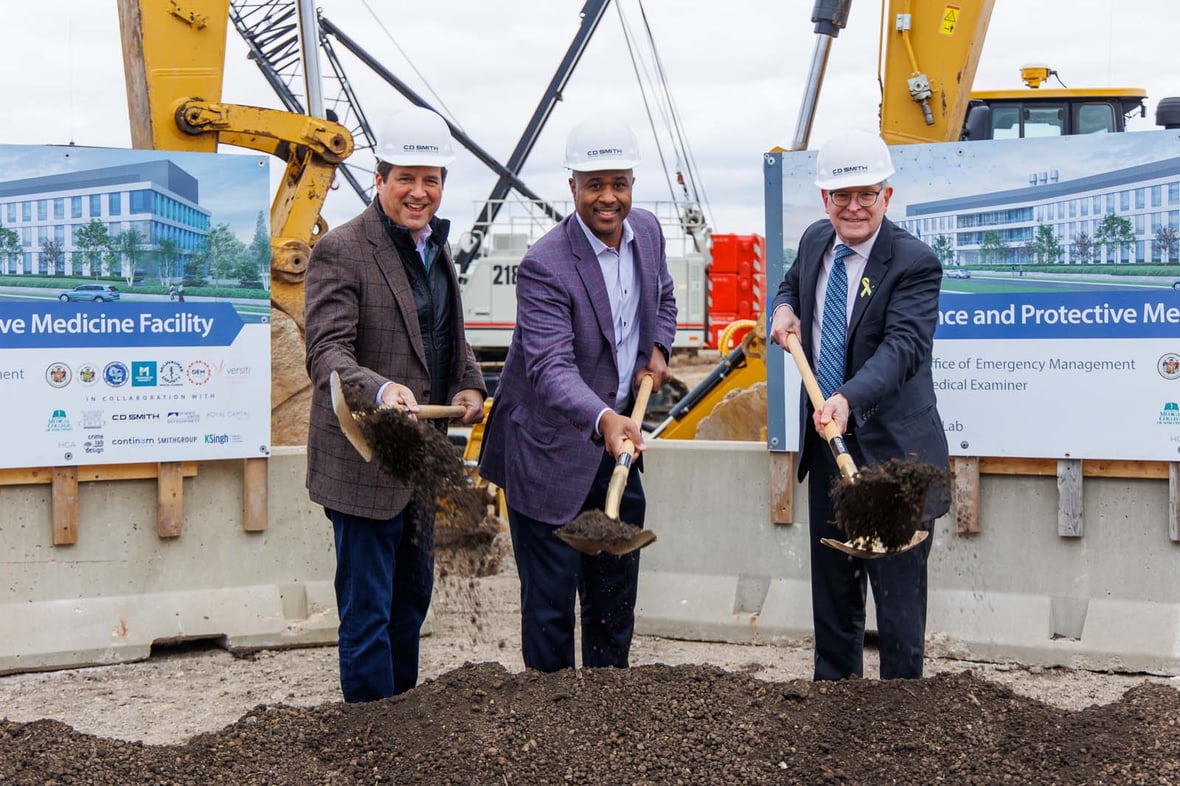
Since December 2015, the Medical College of Wisconsin (MCW) has served as the key campus partner in the planning, design and implementation phases of the project, continuing MCW’s long-time partnerships with the state and county to improve the health of the community through expanded academic, training and research opportunities.
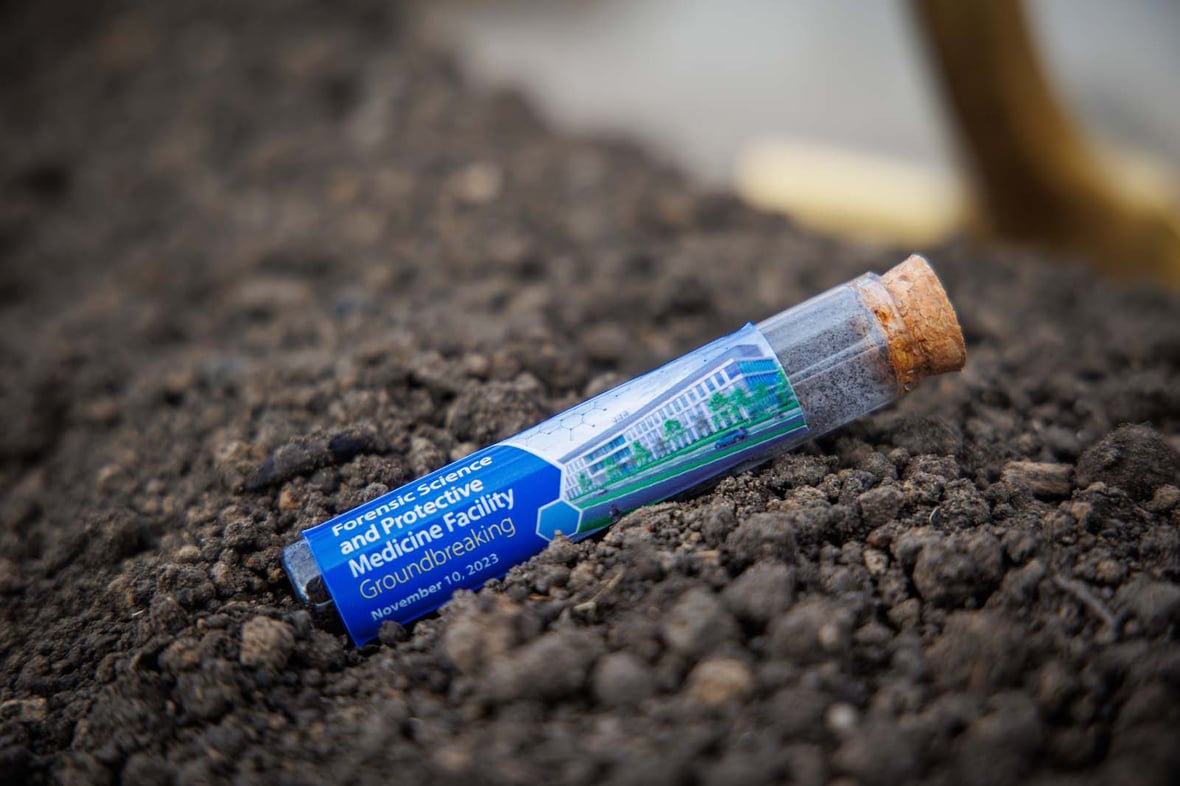
“This is a significant accomplishment for the Medical College of Wisconsin and all partners involved. We look forward to continued collaboration and impact across our education, clinical, research and community engagement pillars,” said MCW president and CEO John R. Raymond, Sr., MD. “We look forward to welcoming a new team of scientists to the MRMC campus who will strengthen existing connections and create new ones.”
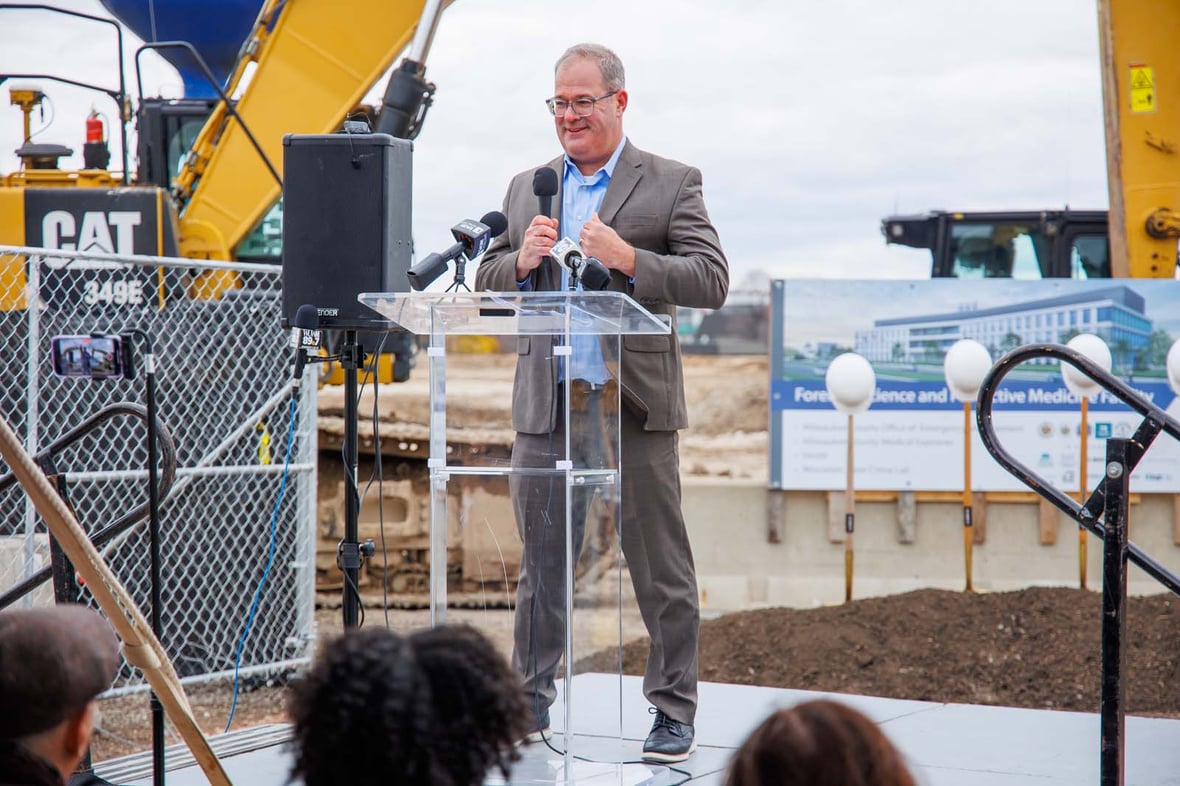
The site for the new building is a 7.6-acre parcel within the MRMC at West Wisconsin Avenue and North 94th Street. The project team is led by C.D. Smith Construction and their development partners, Summit Smith Development and Royal Capital Group. The design team includes HGA Architects, Smith Group, Continuum, and Crime Lab Design. A spring 2026 opening is planned.
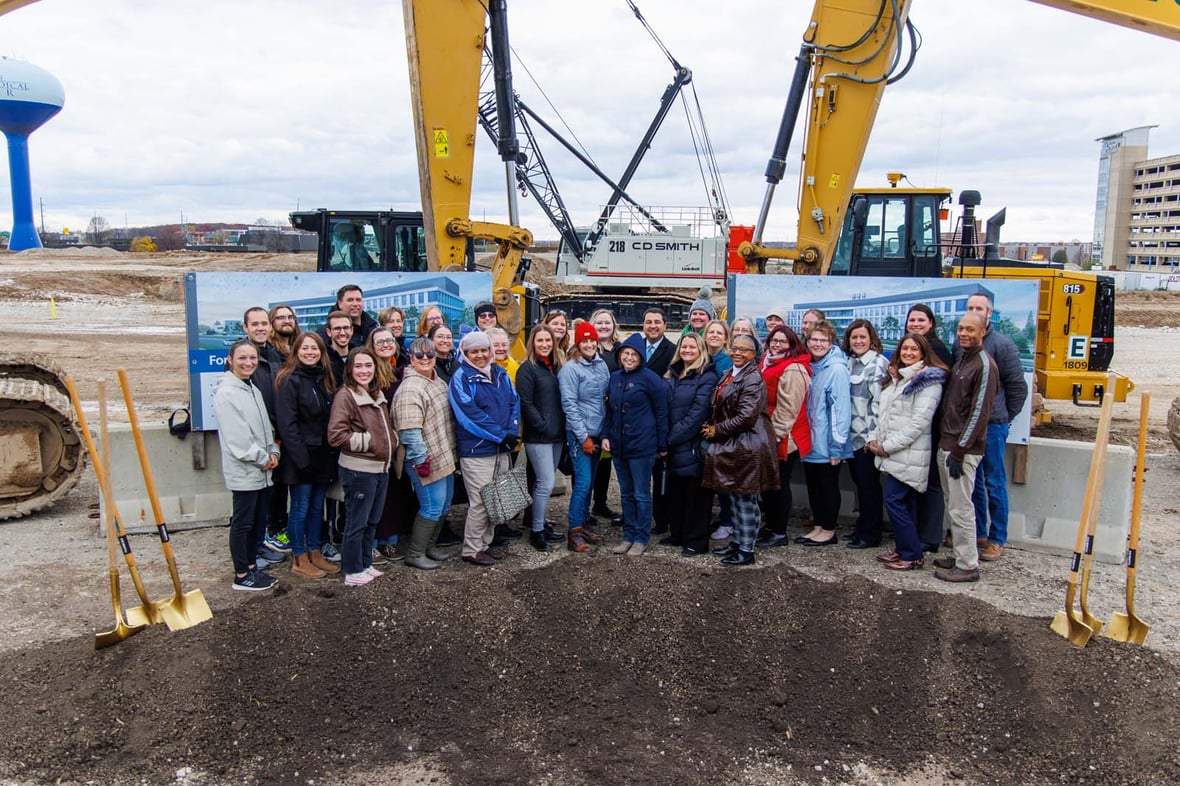
###




















«•»
Follow C.D. Smith ON SOCIAL
#CDSmith #ThinkSafeWorkSafe










CONTACTS:
- Britt Cudaback, Office of Governor Tony Evers, 608-219-3001 [email protected]
- Gillian Drummond, Wisconsin Department of Justice, 608-266-1220, [email protected]
- Emily Tau, Milwaukee Co. Office of the County Executive (414) 559-7347, [email protected]
- Kristin Paltzer, Versiti Blood Center of Wisconsin, 262-388-1909, [email protected]
- Holly Botsford, Medical College of Wisconsin, 414-688-7960, [email protected]
About DOJ’s Division of Forensic Science
The Wisconsin Department of Justice Division of Forensic Science (DFS) was established as an independent division in 2019, though the Wisconsin State Crime Laboratory was originally established in 1947. DFS employs over 190 people including forensic scientists, technicians, evidence specialists, and crime scene response professionals. These dedicated professionals provide impartial forensic analysis in the following areas of science: toxicology, drug identification, biology/DNA analysis, DNA database, trace evidence analysis, firearms examination, toolmark analysis, latent print examination, footwear analysis, ten print comparison, and forensic imaging and video analysis.
DFS crime laboratories—located in Madison, Milwaukee, and Wausau—are the only full-service forensic science laboratory system in Wisconsin. DFS is not a diagnostic laboratory system; the circumstances of each case submitted to DFS are unique. The needs of the submitting agency, the type of crime and impact on public safety as well as court/trial demands are considered for each case.
DFS provides unbiased scientific testing and analysis of evidence for every community in Wisconsin and staffs on-call Crime Scene Response Units, located at each laboratory, to assist law enforcement at major crime scenes by processing and photographing the crime scene, providing scene documentation and trajectory analysis and maintaining evidence integrity.
About the Milwaukee County Medical Examiner’s Office
The purpose and function of the Milwaukee County Medical Examiner’s Office (MCMEO) is to determine the cause and manner of death in those deaths that fall under the jurisdiction of the Medical Examiner’s Office. The mission of the MCMEO is to promote and maintain the highest professional standards in the field of death investigation, provide timely, accurate and legally defensible determinations as to the cause and manner of death, enhance public health and safety through reducing the incidence of preventable deaths, foster public awareness of health risks and safety hazards, support the advancement of professional medical and legal education; and protect the interests of deceased individuals, their loved ones, and the communities we serve. It is the ultimate goal of the office to lead the way in standardizing, improving and professionalizing death investigation in the State of Wisconsin.
About Versiti
Versiti is a world-class blood health organization with locations across the Midwest. Headquartered in Milwaukee, Versiti was formed with a mission of service to improve patient outcomes, advance the field of personalized medicine and strengthen the health of communities everywhere. We are deeply rooted in the communities we serve, providing innovative, value-added solutions in the fields of transfusion medicine, transplantation, and blood-related diseases. From research, clinical care, and diagnostic testing to the sharing of life-saving gifts through blood, organ and tissue donation, the collective efforts across Versiti result in more hope for the communities that trust us. For more information, visit Versiti.org.
About the Medical College of Wisconsin
With a history dating back to 1893, The Medical College of Wisconsin is dedicated to leadership and excellence in education, patient care, research, and community engagement. More than 1,400 students are enrolled in MCW’s medical school and graduate school programs in Milwaukee, Green Bay, and Central Wisconsin. MCW’s School of Pharmacy opened in 2017. A major national research center, MCW is the largest research institution in the Milwaukee metro area and second largest in Wisconsin. In the last 10 years, faculty received more than $1.5 billion in external support for research, teaching, training, and related purposes. This total includes highly competitive research and training awards from the National Institutes of Health (NIH). Annually, MCW faculty direct or collaborate on more than 3,100 research studies, including clinical trials. Additionally, more than 1,600 physicians provide care in virtually every specialty of medicine for more than 2.8 million patients annually.
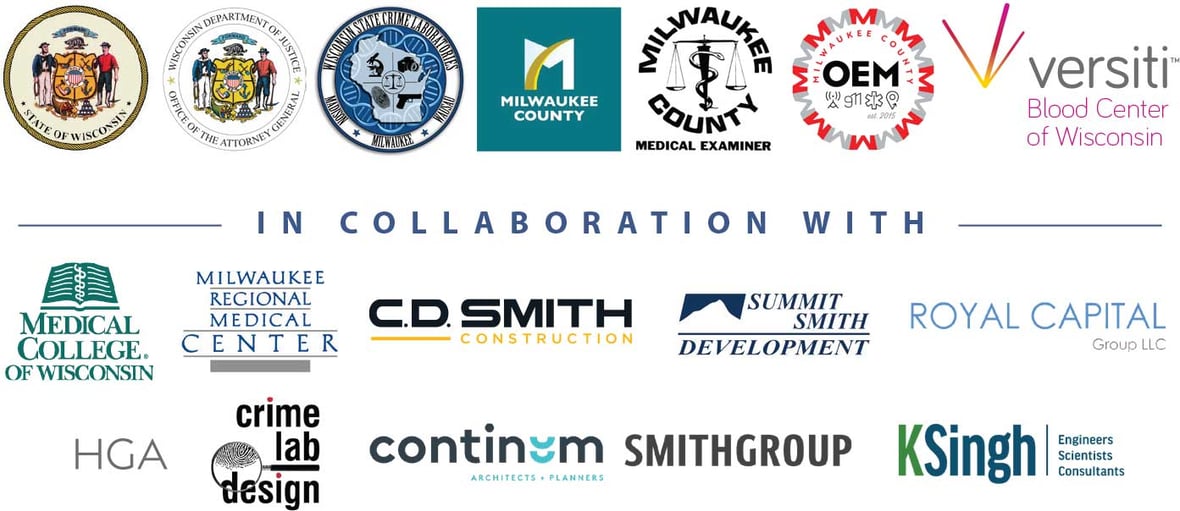
«•»
Follow C.D. Smith ON SOCIAL
#CDSmith #ThinkSafeWorkSafe





